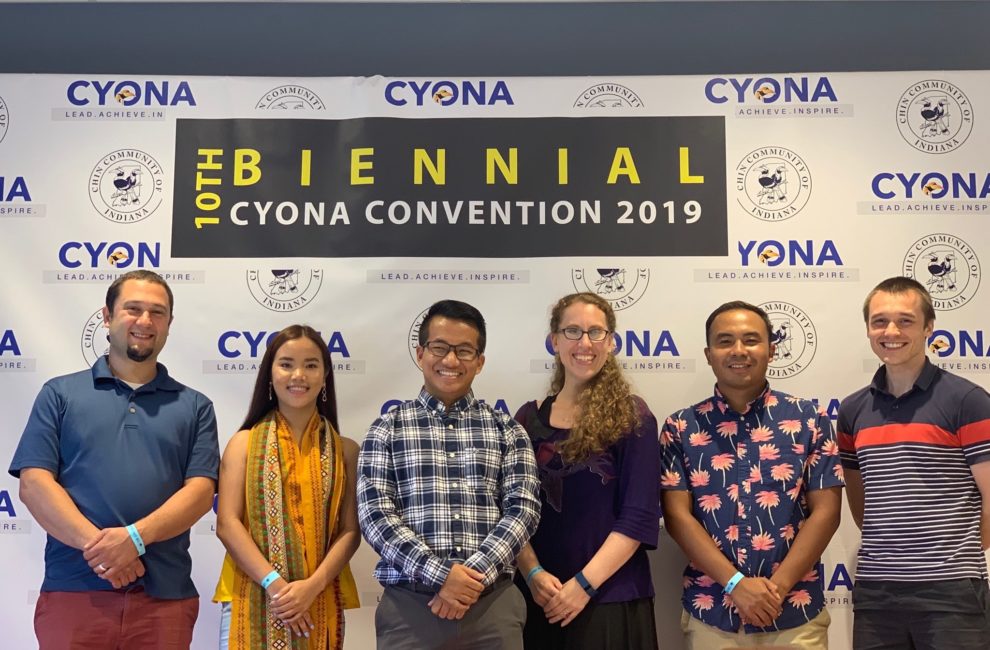IU Students Translate COVID-19 Materials For Indiana’s Burmese Community

Students from Indiana University translated coronavirus FAQs and fact sheets for Indy’s Burmese community Courtesy of Kelly H. Berkson
It’s hard enough to get reliable information about the coronavirus even when you have government guidance, but it’s nearly impossible to navigate filing for unemployment or applying for a small-business loan when you can’t read the application.
Yet that’s reality for the nearly 19,000 Burmese refugees who live in Indianapolis—or, at least, it was, until the second week of March. That’s when a team of undergraduate and graduate linguistics students at Indiana University Bloomington began translating coronavirus FAQs and fact sheets from the governor’s office and the World Health Organization into Hakha Lai (also referred to as Hakha Chin or Laiholh), the language used by those in Chin State who don’t share a native language.
“It’s sobering to stop and think about the flood of information accessible to us in English,” says Kelly H. Berkson, an assistant professor of linguistics at IU Bloomington who heads the Chin Languages Research Project. “The WHO coronavirus materials are available in a handful of other languages, but there are several hundred in Indiana and over 7,000 on this planet, so that doesn’t even scratch the surface.”
Peng Hlei Thang, a senior at IU from Tlangkhua village in Chin State, a small rural area in western Myanmar, had been a part of IU’s Chin Languages Research Team since early 2018. The group initially focused on census information, but a few days after Indiana recorded its first coronavirus case in early March, he suggested they shift their concentration to translating information about the coronavirus for the Indianapolis Chin community. “Many people in our community were greatly appreciative,” he says. “I think it gives them a sense of belonging to know they aren’t forgotten.”
Berkson says that while Burmese refugees in Indianapolis speak 20 to 40 Kuki-Chin languages, the Chin Languages Research Team chose to translate into Hakha Lai because it’s akin to a universal adapter. “It’s the lingua franca in Chin State, which means it’s used to communicate between groups who don’t share a native language,” she says. “Perhaps half of the people in the community speak it, plus it has a widely used writing system.”
But widespread use doesn’t equate to easy translation. In addition to fundamental differences between the two languages like word order—the verb comes at the end of the sentence in Hakha Lai rather than between a subject and object in English—, Peng Hlei Thang says the students faced the additional challenge of rendering technical information, like the concept of ‘respiratory hygiene,’ comprehensible for an audience that often reads at a third-grade level. “Due to the lack of formal education back home (the Burmese government banned the teaching of ethnic languages in public schools until 2010), our audience has difficulty comprehending written communication, even if it’s in Laiholh,” he says.
While three undergraduate students, all native speakers of Hakha Lai, complete the translations, Berkson and three graduate students update the website, handle graphic design, and research copyright law. When Indiana Governor Eric Holcomb issued the stay-at-home order on March 23, the team accessed the state’s FAQ page around 2 p.m. and had a translation of the three-page document live on the site, chinlanguages.org, around midnight.
The team has so far translated information about stimulus checks, Indiana’s stay-at-home order, and the Coronavirus Aid, Relief, and Economic Security (CARES) Act. “We tackle whatever the community tells us they need,” Berkson says. “If a local pastor gets a specific request, they may let us know.”
The team has been posting links to the translations on its Facebook page, which can then be shared by organizations like Chin Community of Indiana, Chin Youth Organization of Indiana, and Chin Baptist Churches USA. Berkson says a local Franciscan Health hospital has also requested the materials.
She says that while the students are busy wrapping up the semester and aren’t currently completing any translations, she hopes she’ll receive funding to continue the project over the summer. “I think the coronavirus is going to be with us for a while,” she says. “So it’d be great to have those resources available.”





